Following a series of high-profile rulings addressing such issues as affirmative action, LGBTQ rights and student loans, the share of Americans with a favorable opinion of the U.S. Supreme Court has declined to its lowest point in public opinion surveys dating to 1987.
Fewer than half of Americans (44%) now express a favorable opinion of the court, while a narrow majority (54%) have an unfavorable view, according to a new Pew Research Center survey.
Opinions of the court have become somewhat less positive since April, when about half of Americans had a favorable impression.
The court’s favorable rating has declined 26 percentage points since 2020. The current survey marks the first time in our polling dating to 1987 that the public’s views of the Supreme Court are significantly more negative than positive.
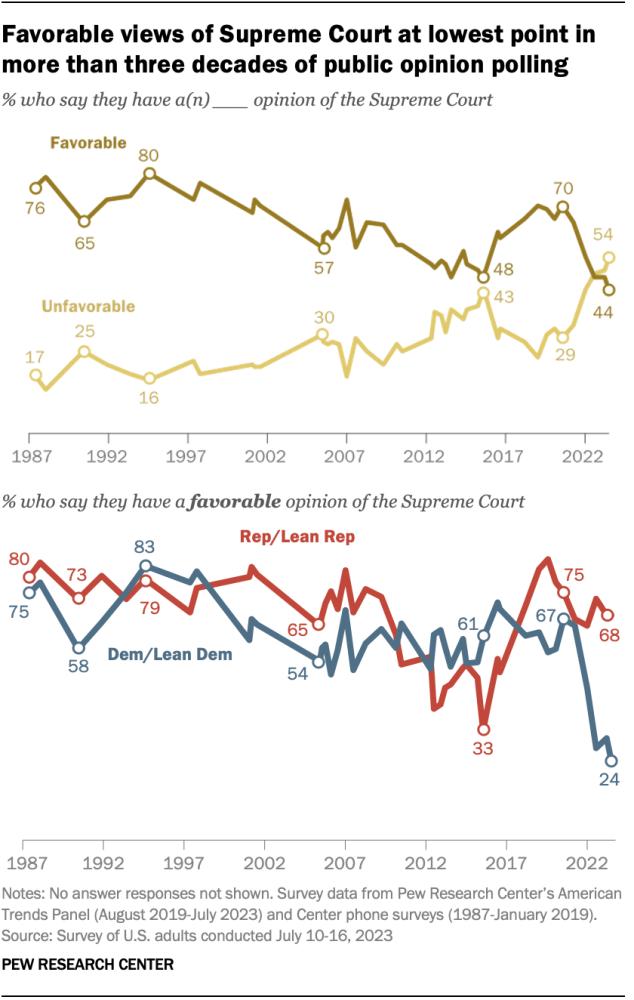
How Democrats and Republicans see the Supreme Court
Just 24% of Democrats and Democratic-leaning independents view the Supreme Court favorably, down 7 percentage points since April and the lowest favorable rating for the court in either party in more than 30 years.
As recently as 2021 – before the court’s decision last year to overturn the federal right to abortion, as well as other controversial rulings – nearly two-thirds of Democrats had a favorable impression of the Supreme Court.
By contrast, Republicans are much more likely to view the court favorably, with 68% holding a positive opinion. Republicans’ opinions of the court have shown much less change in recent years than Democrats’ views.
Perceptions of the Supreme Court’s ideology
Half of Americans now view the Supreme Court as conservative, while four-in-ten see it as “middle of the road.” Only 7% describe the court as liberal.
Public perceptions of the Supreme Court’s ideology have not changed much in the past year. Since 2020, however, the share of Americans saying the court is conservative has increased 20 points. That year, a majority (56%) said the court was “middle of the road,” while 30% viewed the court as conservative and 12% said it was liberal.
Democrats are much more likely than Republicans to view the Supreme Court as conservative: 71% of Democrats say the court is conservative, but just 32% of Republicans say the same.
Republicans are more than twice as likely as Democrats to say the court is “middle of the road” (57% vs. 24%).
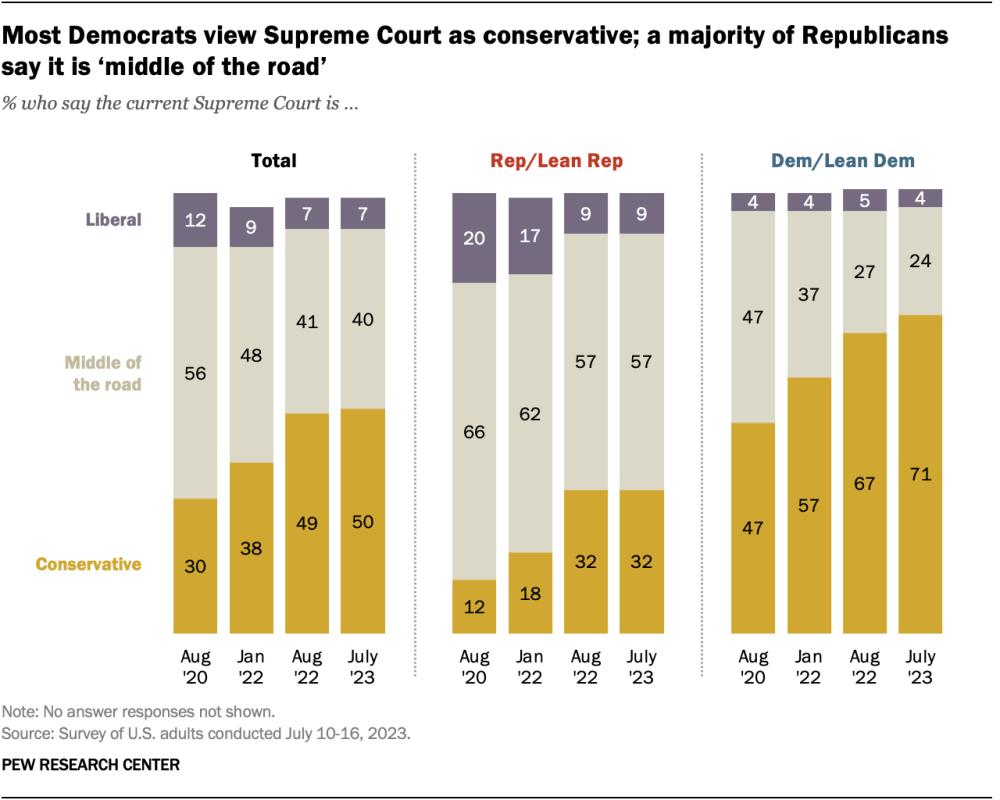
Views of the Supreme Court’s power
Roughly half of Americans (51%) say the Supreme Court has the right amount of power, while four-in-ten view the court as having too much power. Just 7% say the court has too little power. These opinions have changed little since 2022, when 48% of Americans said the court had the right amount of power and 45% of Americans said it had too much power.
In the new survey, Democrats are three times as likely as Republicans (60% vs. 20%) to say that the court has too much power. By contrast, when asked the same question in 2020, similar shares of Democrats (64%) and Republicans (66%) said the court had the right amount of power.
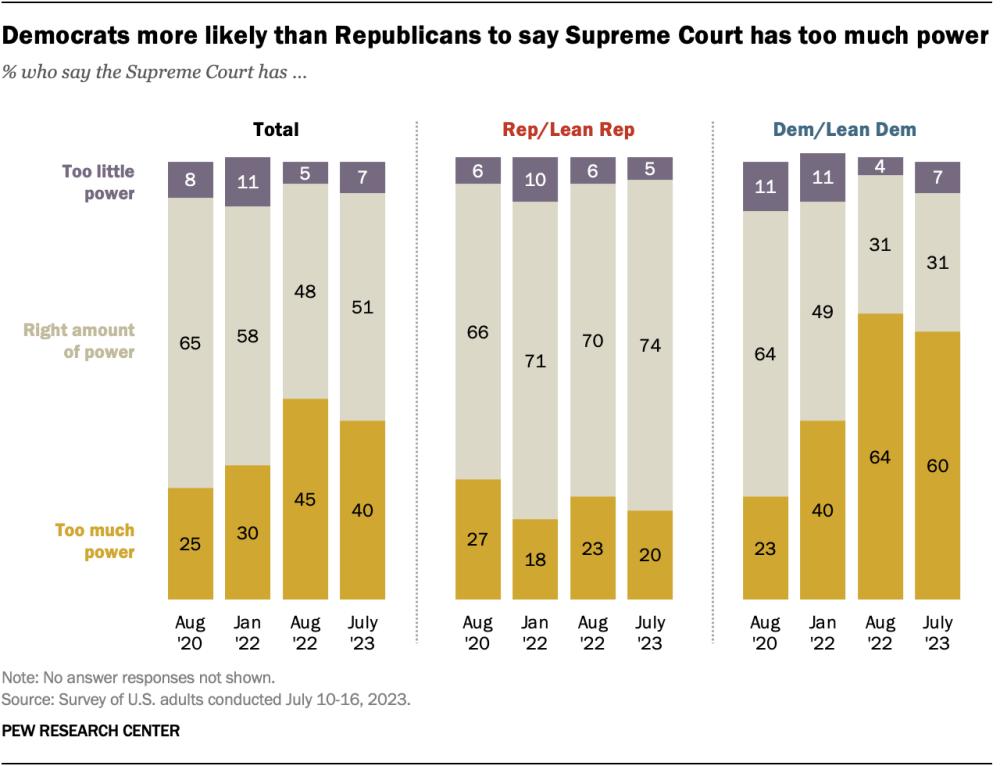
Demographic differences in views of the Supreme Court
Here’s a closer look at how different groups of Americans see the Supreme Court:
- By 57% to 40%, women view the court unfavorably, while men are divided.
- About two-thirds of Black adults express an unfavorable opinion of the court, compared with roughly half of Hispanic, Asian and White adults.
- There are sizable age differences in views of the Supreme Court. Just 30% of adults under age 30 have a positive impression of the court – a far lower share than among older groups.
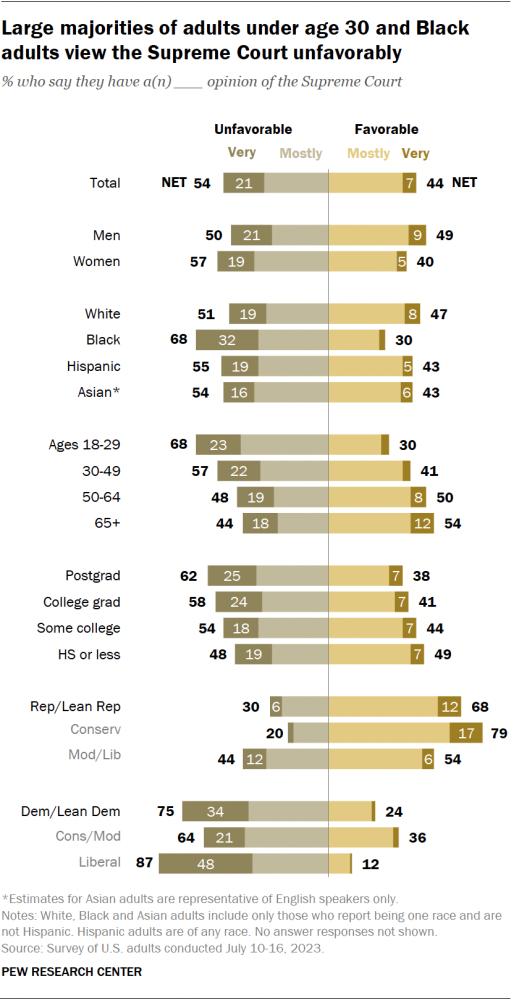
-
Demographic differences within parties in views of the court
-
Democrats with lower levels of educational attainment view the Supreme Court more positively than those with higher levels of education. Around four-in-ten Democrats with no more than a high school diploma (39%) view the court favorably, compared with just 14% of Democratic college graduates.
The opposite is true among Republicans. About eight-in-ten Republican adults with a postgraduate degree (79%) have a favorable opinion of the court. That view is shared by a smaller share (62%) of Republicans with no more than a high school diploma.
Older Republicans continue to view the court more favorably than younger Republicans. About eight-in-ten Republicans (78%) ages 50 and older see the court positively, while 57% of GOP adults under 50 say the same.
-
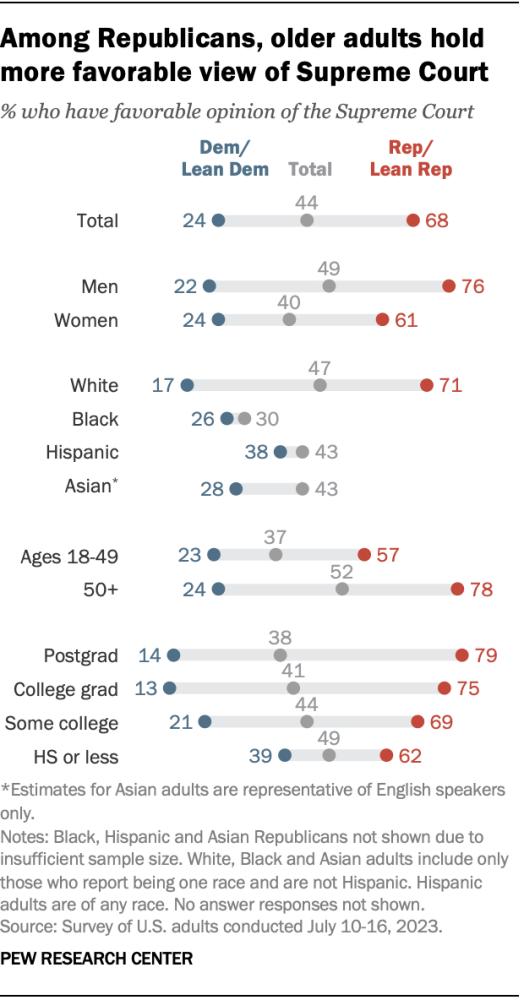
Note: Here are the questions used for the analysis and its methodology.
-
Katy Lin is an intern focusing on U.S. politics and policy research at Pew Research Center.
-
Carroll Doherty is director of political research at Pew Research Center.

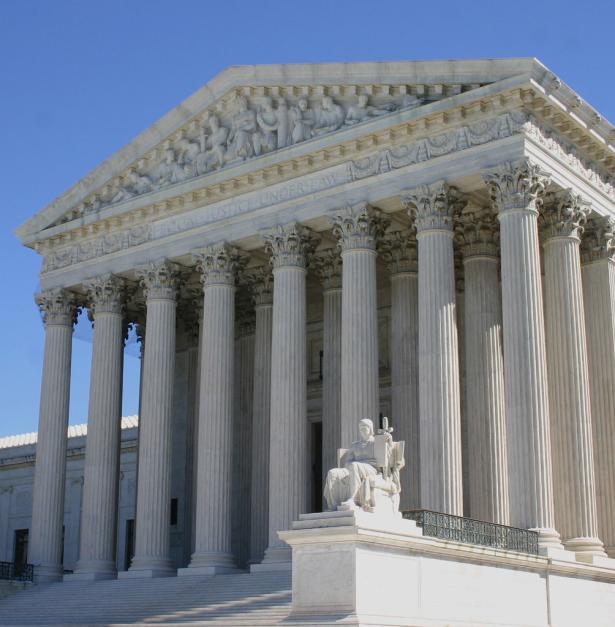
Spread the word